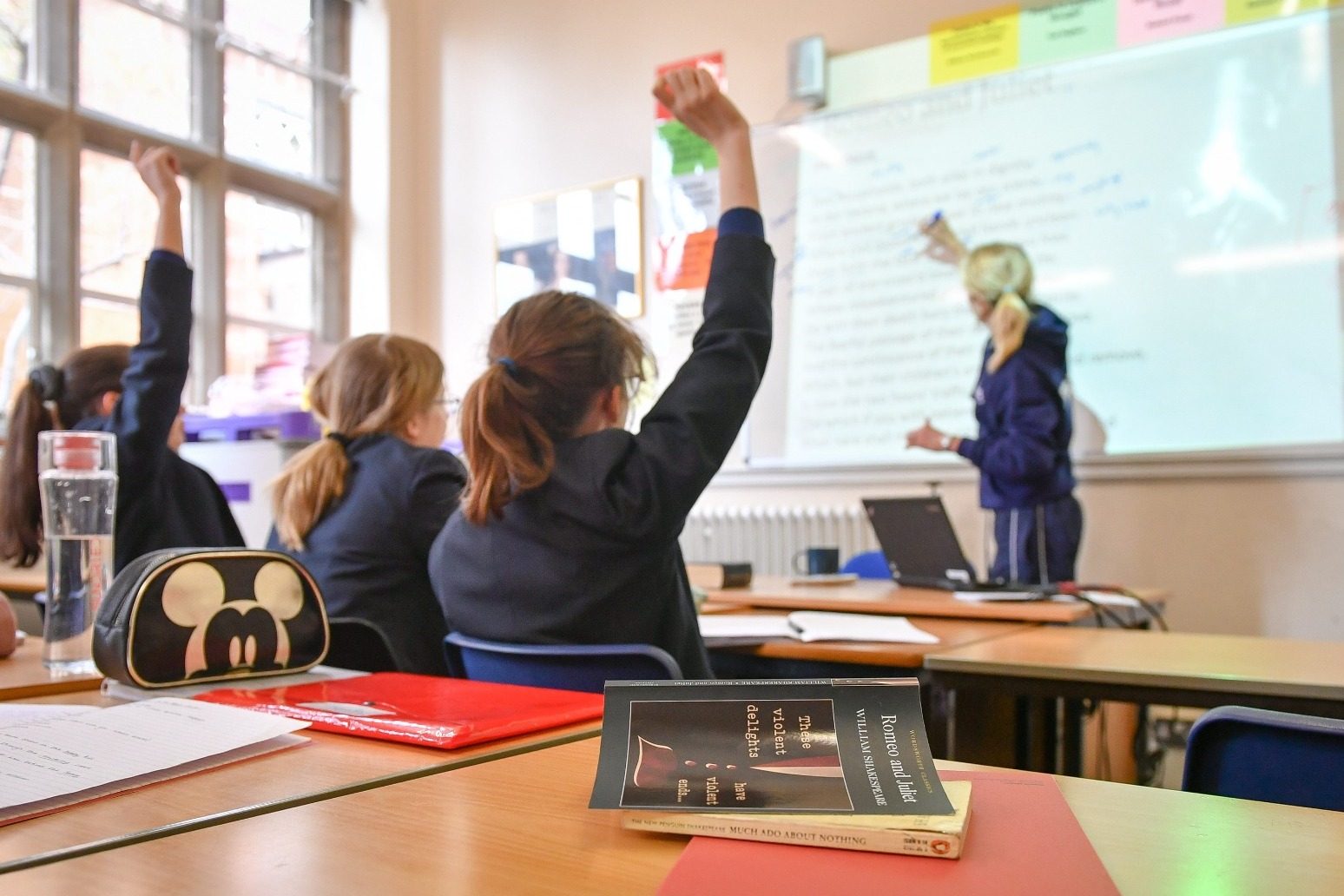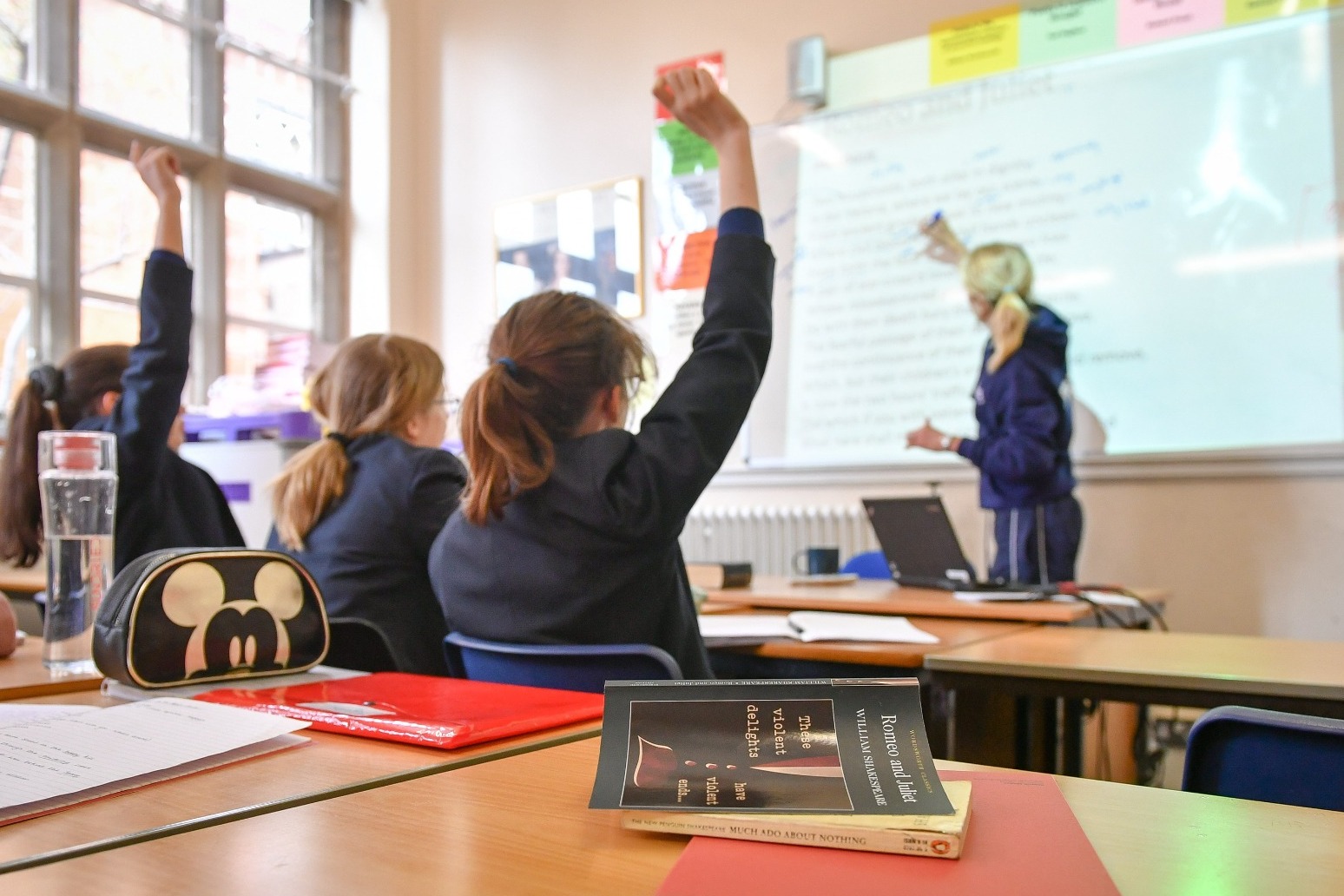Listeners:
Top listeners:
-
 play_arrow
play_arrow
WBPL – LIVE As Blackpool As You Are
 Adele - Easy On Me
Wow I love this song! Thank you for your amazing music!
Aria R.
Adele - Easy On Me
Wow I love this song! Thank you for your amazing music!
Aria R.
 Deep Purple - Smoke On the Water
Shoutout to the rainbow in my life, Gina!
Orion S.
Deep Purple - Smoke On the Water
Shoutout to the rainbow in my life, Gina!
Orion S.
 Luna Park - Space Melody (Radio Version)
Calling my cosmic companion, Jane! Hit play and let's embark on a musical space journey.
Luna Park - Space Melody (Radio Version)
Calling my cosmic companion, Jane! Hit play and let's embark on a musical space journey.
Schools face tight budgets as rising costs may outstrip growth in funding IFS


State schools in England could face “very tight” budgets as rising costs are likely to outstrip the growth in school funding, a report has estimated.
School costs could rise by around 3.6% in 2025/26 if the pay review body follows the Government’s recommendation for a 2.8% pay award for teachers in 2025, according to the Institute for Fiscal Studies (IFS).
The report on education spending in England estimates that mainstream school funding per pupil will grow by 2.8% in cash terms in 2025/26 – which it called a “small” real-terms rise compared to inflation.
“If these projections are accurate, then core school budgets will feel very tight in 2025/26,” the IFS said.
The annual report – funded by Nuffield Foundation – concluded that “schools might struggle to cover their costs without making savings”.
The researchers added that around half of the rise in school funding between 2019 and 2024 has been absorbed by the rising costs of special educational needs (SEN) provision.
The IFS report estimates that mainstream school funding per pupil grew by 5% in real terms between 2019 and 2024, rather than the 11% total increase, after accounting for planned spending on high needs.
“This may explain why school leaders have felt their budgets squeezed by more than might be implied by large increases in overall funding,” the researchers said.
In November, the Government announced that undergraduate tuition fees in England – which have been frozen at £9,250 since 2017 – would rise to £9,535 for the 2025/26 academic year.
It came after university leaders warned of significant financial concerns as a result of frozen tuition fees paid by domestic students and a fall in the number of international students.
The IFS report said falls in international student numbers at some universities – and additional costs from the rise in employer national insurance contributions – mean that ending the fee freeze “will not be enough to put the sector on a secure financial footing”.
It added: “University finances will remain a headache for the new Government at the spending review in summer 2025 and as it sets future tuition fee caps.”
Colleges and sixth forms also face “financial uncertainty and challenges” as they must accommodate a growing student population, the report said.
Researchers from the IFS estimated that college funding per student aged 16–18 in 2025 is still around 11% lower in real terms than in 2010, and school sixth-form funding per student is around 23% lower.
Luke Sibieta, research fellow at the IFS and an author of the report, said: “This year’s spending review will bring a lot of difficult choices on education funding in England.
“A very tight picture on the public finances means that most departments, including education, will probably need to make savings. Working out exactly how and where is much easier said than done.
“Spiralling costs of special educational needs provision seem likely to wipe out any opportunities for savings in the schools budget from falling pupil numbers.
“College and sixth form budgets are already stretched, and will need to cover the cost of rising student numbers.
“The inflation-linked rise in tuition fees only provided a brief reprieve for university finances, and further tuition fee rises seem likely.”
Julie McCulloch, director of policy at the Association of School and College Leaders (ASCL), said: “This report reveals the reality that is facing many schools and colleges – yet another round of cutbacks.
“It will inevitably mean further reductions to pastoral support, curriculum options and classroom resources. It is also likely that in many cases class sizes will increase.
“Schools and colleges have been expected to absorb relentless financial pressures over the past 15 years, and they have done an incredible job in minimising the impact on students.
“But we cannot go on like this. It is death by a thousand cuts. The government must recognise the importance of improved investment in education.”
Paul Whiteman, general secretary at school leaders’ union NAHT, said: “There is no doubt that school budgets remain under tremendous pressure.
“We know that some schools are facing real difficulties in making budgets add up and many school leaders – who have already cut operations to the bone – remain worried about the outlook for next year.
“It’s vital that this is recognised and addressed in the spending review if schools are to be spared further unpalatable decisions like cutting staff and curriculum resources which make it harder for them to offer children a first-rate education.”
A Department for Education spokesperson said: “One of the missions of our plan for change is to give children the best start to life.
“This was built upon the steps set out at the Budget which increased school funding to almost £63.9 billion in financial year 2025-26, including £1 billion for children and young people with high needs.
“We are determined to fix the foundations of the education system that we inherited and will work with schools and local authorities to ensure there is a fair education funding system that directs public money to where it is needed to help children achieve and thrive.”
Published: by Radio NewsHub
Written by: admin
Similar posts
-
Recent Posts
- Over 50s Provided More Donated Organs Than Ever Before Last Year Data Shows
- CPR Questions To Be Added To Driving Theory Test
- Speed Of Improvement In Cancer Survival Rates Slowing Say Experts
- Starmer To Co Chair Ukraine Meeting After Call With Trump And European Leaders
- 50000 Migrants Have Crossed Channel On Small Boats Since Labour Took Power
Chart
-

1
Jonas Blue, Liam Payne And Lennon Stella
Polaroid
-

2
Tanja Thomas
One Way Ticket (To The Blues)
-
3
The Monkees, 01.01
I'm A Believer
-
Top popular

Difficult day as last blast furnace shuts down at Port Talbot steelworks

UK Government charters flight for Britons in Lebanon

Household energy bills to rise for winter as Ofgem lifts price cap

Downton Abbey creator Julian Fellowes Dame Maggie Smith was blessing in my life

Ringleader of plot to smuggle 76m of cocaine into UK hidden in bananas jailed

WHO WE ARE
We are bringing the fun back to the seaside city, and we live and love EVERYTHING Blackpool!
CONTACT
- info@wbplradio.com
Copyright The Mediasite UK - 2024.



